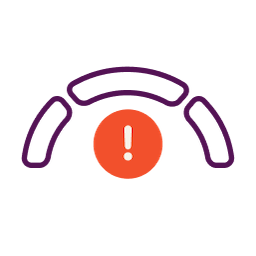Executive Summary
A business checking account is an important financial tool. It will not typically appear on business credit reports, however, and will not affect business credit scores.
But a business bank account will often help a business qualify for lenders small business loans and financing, because lenders often take bank activity and cash flow into account when evaluating applications for credit.
Additionally, there is a fairly recent effort to incorporate bank account information into certain credit scoring models.
Here’s a closer look at checking accounts, credit, and the evolving role of cash flow data in assessing creditworthiness.
Do Checking Accounts Affect Your Credit Score?
Checking accounts don’t typically have a positive or negative impact on credit scores.
The major business credit bureaus—Experian, Equifax, and Dun & Bradstreet—primarily base business credit scores on how businesses manage tradelines. Bank accounts don’t involve the extension of credit, so they aren’t included in credit scoring models. (Overdraft lines of credit are often an additional feature that require a credit check.)
For example, Experian bases its business credit scores on the following factors:
- Payment habits on credit accounts (late payments vs. on-time payments)
- Number of tradelines (loans, lines of credit, credit cards, etc.)
- Outstanding balances on credit accounts
- Credit utilization (the percentage of your credit limit you’ve used)
- Public records
- Company demographics
- Tradeline trends over time
When looking at the major consumer credit reporting agencies, the same is true. Experian, Equifax, and Transunion® all base personal credit scores primarily on an individual’s payment history, credit utilization, credit mix, age of credit history, and new credit/inquiries.
That said, Experian offers Experian Boost®, which can help consumers boost their credit scores by linking their bank account with Experian. Once connected, you can add recurring bill payments (phone, internet, etc.) to your personal credit reports. You can instantly see how much your personal FICO score increased by linking your account.
It’s also worth noting that there are other times banking information can impact your credit reports. If you overdraft a checking account, for example, that negative information may be reported to credit bureaus—usually to specialized consumer reporting mentioned below.
And if you have overdraft a bank account and fail to pay back what you owe, that balance could be turned over to a collection agency which will likely result in a collection account on your credit reports. Collection accounts are considered very negative, and they may appear on consumer or business credit reports.
What Are Bank Reporting Agencies and Why Do They Matter?
While bank accounts aren’t typically included on business or consumer credit reports, they may be reported by specialized credit reporting agencies such as ChexSystems, TeleCheck, Certegy, CrossCheck, Early Warning, Global Payments Check Services and others.
These companies usually, they collect negative information related to deposit accounts such as:
- Overdrafts
- Bounced checks
- Unpaid negative balances
- Involuntary account closures
- Suspected fraud or identity theft
Why does this matter?
When you apply for a business or personal deposit account with a bank or credit union, they’ll often pull one or more of these reports. If negative information is found, you may be seen as high-risk and be unable to open an account. For example, if you have negative marks associated with your personal bank accounts, one of these reports could cause a bank to deny you a business bank account. However, these reports are completely separate from your credit reports and have no impact on them.
How Lenders Use Your Bank Accounts To Assess Loan Eligibility
While checking account information won’t impact your credit scores, it can often play a significant role in getting approved for a small business loan or financing. When you apply for business financing, lenders often request access to your bank account (through online banking) or ask for three to six months of bank statements.
Lenders often want to verify business income and evaluate cash flow trends.
They can learn a lot by analyzing banking activity. For example, if your balance is growing month after month, it usually means you’re bringing in more revenue than you are spending, which means you present less risk. On the other hand, if deposits or balances are declining, it may indicate you are experiencing cash flow shortages which presents a higher risk.
Is Cash Flow Data the Future of Credit?
Credit bureaus, lenders, and other companies are showing interest in leveraging richer bank data to better assess credit risk. Many are already doing basic cash flow checks, as evidenced by bank statement requirements.
However, cash flow is likely to become more of a factor in credit scoring and underwriting practices, and the technology has better ways of capturing it.
On the consumer side, programs like Experian Boost or UltraFICO are using bank data to potentially increase their scores and increase access to credit.
Additionally, many e-commerce platforms and payment processors use cash flow data to qualify users for their lending programs. For example, Stripe, Shopify, and PayPal monitor the sales of their users and offer financing based on cash flow trends—often not considering credit scores at all.
The case for bank account data
For many business owners, cash flow data is available long before credit data. Businesses start making sales before they establish business credit or get a business credit card, for example. If cash flow data from bank accounts helped establish a company’s credit file, they could potentially qualify for financing sooner.
As it currently stands, revenue growth doesn’t have any impact on your credit scores. As a result, in the above situation, traditional lenders would see no credit score and no credit history which may lead them to reject the application.
(It’s not completely hopeless, though. Several types of small business loans and financing use revenues, rather than credit, as the primary decision factor.)
On the flip side, if you’re having cash flow problems but have always repaid your tradelines in the past, negative cash flow could negatively impact credit scores and make it harder to get financing when it’s most needed.
The Pros and Cons of Cash Flow Data Affecting Credit Scores
Pros
- Provides alternative data for lenders
- Expands opportunities for financing
- Could help build credit faster
Cons
- Decreasing revenue could make it difficult to qualify
- Some lending already uses revenue to qualify
- Raises additional security concerns
How Nav Can Help
With Nav, you can view your top financial options from 160+ trusted loans and credit cards based on your business data. View personal and business credit in one dashboard, and connect your bank account to get insights into your business financial health.
Nav offers a solution that primes you for financing in three ways: Establish business credit with the Nav Prime charge card, meet one typical lender requirement with Nav Business Checking*, and get insights into improvements to your cash flow and business credit score.
With the Nav Prime Card* transactions are submitted as a monthly tradeline, turning everyday transactions into opportunities that can build business credit with regular use. With Nav Prime and the Nav Prime Card, you can double your tradelines.
FAQs About Bank Accounts and Credit Scores
Here are answers to additional questions you may have about checking accounts, credit scores, and financing.
Do checking accounts affect your business credit score?
Checking accounts do not (typically) directly affect business credit scores. Indirectly, a lack of business credit can make it more difficult to get financing that may appear on business credit reports and help boost business credit scores.
Does a business checking account help business credit?
Again, business checking accounts aren’t typically reported to business credit reports, so they don’t directly affect business credit ratings. Indirectly, though, they can help business owners qualify for tradelines, which are accounts that appear on business credit reports. If a business owner gets financing based on the information in their business bank accounts, that new loan or net-30 account can then help establish business credit.
Why do I need a business bank account?
There are several very good reasons to open a business bank account as soon as possible. Among them:
1. Separate your personal and business finances
A business checking account makes it easy to keep personal finances and business finances separate. It makes bookkeeping simpler and makes it easier to track business expenses and income.
If you operate your business as a legal entity (LLC or corporation), it’s especially important to keep these separate to help maintain the asset protection benefits of your legal entity.
2. Professionalism
With a business checking account, your business looks more professional to clients, suppliers, and partners.
3. Simplify accounting and tax preparation
A separate business checking account makes it much simpler to keep a clear record of your business income and expenses. Many times you can link your business bank account with your accounting software, making bookkeeping simpler.
Keeping personal and business expenses separate can help make sure you accurately record your business expenses so you don’t overlook possible tax deductions.
4. Access to financing
As mentioned, many lenders will require business banking history when evaluating an application for a business loan. For some types of financing, it’s even more important than good credit.
5. Better financial management
This is perhaps one of the biggest benefits of using a business bank account. It makes it easier to categorize expenses and monitor cash flow, to help you stay on top of the financial health of your business.
Find the best small business checking accounts here.
How Can I Access My Business Credit Scores?
Business owners can check their business and personal credit scores with Nav. Nav is the only source that provides business and personal credit data from multiple sources in one dashboard.
Will opening a checking account for my business impact my personal credit score?
Financial institutions don’t typically perform a hard credit check when entrepreneurs apply for a business checking or savings account. However, some may use a soft credit check to screen personal credit, especially in the case of a new account opened by small business owners operating as a sole proprietorship.
In the case of business bank accounts, banks may check the ChexSystems reports of those who will be liable for the account.
*Disclaimer: Nav Technologies, Inc. is a financial technology company and not a bank. Banking services provided by Thread Bank, Member FDIC. The Nav Visa® Business Debit Card and the Nav Prime Charge Card are issued by Thread Bank pursuant to a license from Visa U.S.A. Inc. and may be used everywhere Visa cards are accepted. See Cardholder Terms for additional details. FDIC insurance is available for funds on deposit through Thread Bank, Member FDIC. All other features of the Nav Prime membership are not associated with Thread Bank.
This article was originally written on August 10, 2024 and updated on December 4, 2024.




Have at it! We'd love to hear from you and encourage a lively discussion among our users. Please help us keep our site clean and protect yourself. Refrain from posting overtly promotional content, and avoid disclosing personal information such as bank account or phone numbers.
Reviews Disclosure: The responses below are not provided or commissioned by the credit card, financing and service companies that appear on this site. Responses have not been reviewed, approved or otherwise endorsed by the credit card, financing and service companies and it is not their responsibility to ensure all posts and/or questions are answered.